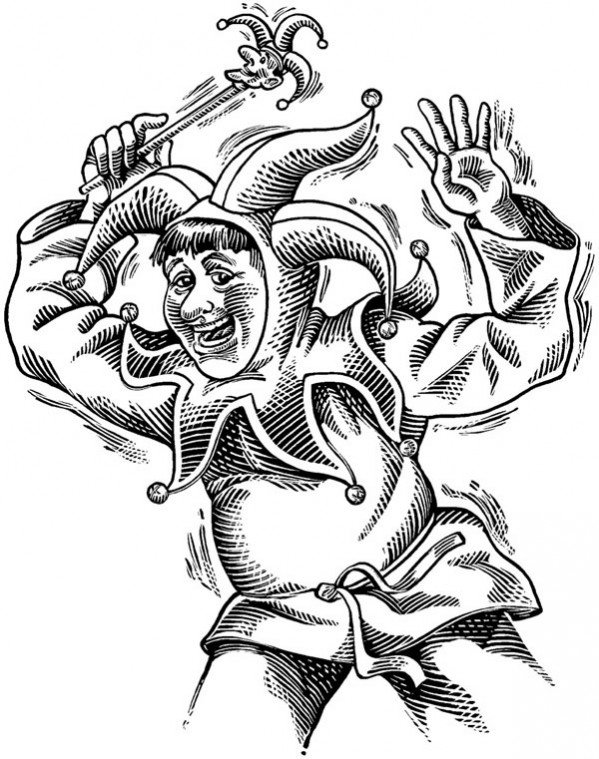The one day of the year when laughing at the expense of your
boss, spouse, children
– whomever, really – is upon us: April Fools’ Day.
Although no one knows for certain the origins of the annual day
for pranksters, the theory is it began in France around 1582 under
Charles IX, who ordered a reform of the calendar.
The one day of the year when laughing at the expense of your boss, spouse, children – whomever, really – is upon us: April Fools’ Day.
Although no one knows for certain the origins of the annual day for pranksters, the theory is it began in France around 1582 under Charles IX, who ordered a reform of the calendar. The Gregorian calendar was introduced, and New Year’s Day was changed to January 1. Previously, the New Year had been celebrated over a week, from March 25 to April 1.
But not everyone adopted the change. In those days, news traveled slowly, and some people were informed of the change several years later. Others simply refused to acknowledge the change and continued to celebrate the New Year on the last day of the former celebration, April 1.
Those who didn’t switch to the Gregorian calendar were labeled fools and ridiculed by the general population, who sent the fools on wild goose chases and other meaningless errands. They became known as “poisson d’avril,” or April fish, because a young, naive fish is trapped easily.
Thus, the first of April became the day to play pranks, a tradition that spread to Britain and Scotland in the 1700s and was introduced to American colonies by the English and French.
Over the centuries, April Fools’ Day has taken on different meanings in different countries. In Rome, the day falls on March 25 and is known as the Festival of Hilaria, or Roman Laughing Day.
The Scottish devote April Fools’ Day to pranks involving the rear end, deeming the day Taily Day. The “fools” the jokes are played on are referred to as April gowks, another name for the cuckoo bird. The origins of the classic prank involving a “kick me” sign slapped on someone’s back can be traced back to Scotland.
In England, practical jokes only are played in the morning, as it’s considered bad luck to do so after noon. The victim of a joke is called a noodle. In Portugal, April Fools’ Day is a two-day event that falls on the Sunday and Monday before Lent, and a common joke is to throw flour on the unsuspecting.
In India, the day is celebrated with the Huli Festival on March 31. People play jokes on each other and smear colors on one another to celebrate the arrival of spring.
Source: www.april-fools.us
Top 5 April Fools’ Day pranks of all time
1. The Swiss Spaghetti Harvest
In 1957, a respected British Broadcasting Co. news program, “Panorama,” announced that an especially mild winter and the elimination of the dreaded spaghetti weevil had caused a bumper spaghetti crop in Switzerland. The announcement was accompanied by footage of Swiss peasants pulling spaghetti noodles out of trees. Thousands of viewers fell for it and called the BBC, inquiring how they, too, could grow spaghetti trees. The BBC’s response? “Place a sprig of spaghetti in a tin of tomato sauce and hope for the best.”
2. In 1998, Burger King placed a full-page advertisement in USA Today announcing the introduction of a new menu item: the Left-Handed Whopper, specially designed for the 32 million left-handed Americans. The advertisement touted the new Whopper’s composition: The ingredients were the same as the original Whopper, but the condiments were rotated 180 degrees to ease the experience of eating the sandwich for left-handed customers. The next day, Burger King released another advertisement revealing the hoax, leaving the thousands of customers who requested the Left-Handed Whopper feeling a bit sheepish.
3. In 1993, Dave Rickards, a deejay at KGB-FM in San Diego, announced the space shuttle Discovery had been diverted from Edwards Air Force Base and would be landing in a matter of minutes at Montgomery Field, a small airport located in a residential area just outside of San Diego. Thousands of commuters flocked to the supposed landing site, causing an hour-long traffic jam that required police intervention. In truth, there wasn’t even a shuttle in orbit at the time. The police were not amused and billed the radio station for the cost of the officers on scene.
4. In 1949, Phil Stone, a New Zealand deejay, announced a mile-wide wasp swarm was approaching Auckland. Stone urged listeners to take measures to protect themselves and their homes, such as wearing socks over their pant cuffs and leaving honey-smeared traps outside their doors. Hundreds of residents heeded his advice, showing up to work with a new fashion statement and sticky fingers. Since then, the New Zealand Broadcasting Service has sent out a memo each year prior to April Fools’ Day, instructing New Zealand radio stations to broadcast the truth and only the truth.
5. In 1979, Capital Radio in London warned residents that Operation Parallax soon would go into effect. The fake operation was a government-directed plan to re-synchronize the British calendar with the rest of the world. It was explained that since 1945, Britain gradually had become 48 hours ahead of every other country because of the constant switch back and forth from British Summer Time, and the British government had decided to “cancel” April 5 and 12 to catch up with the rest of the world. The radio station received numerous calls in response, including an employer who wanted to know if she was required by law to pay her employees for the missing days, and another woman who wanted to know what would happen to her birthday, which fell on one of the canceled days.
Source: www.museumofhoaxes.com
Top 5 common April Fools’ Day pranks
1. After your spouse or roommate goes to bed, set his or her alarm clock one hour later or earlier. Your choice.
2. Superglue things to people’s desks – pencils, mouse pads, telephones – or breakfast tables – coffee cups, silverware, plates.
3. Put food coloring in someone’s water when they’re not looking.
4. Call someone anonymously and tell them their order is ready. When they inquire further, just keep saying, “You know, the order.”
5. If you work in an office, unplug everyone’s telephones, computers and other electronic devices when they’re away from their desks. Just be sure to save their work.












